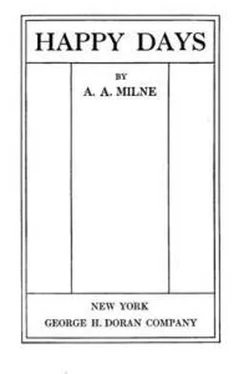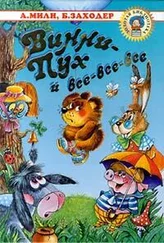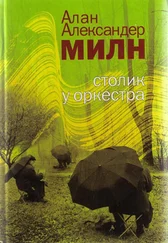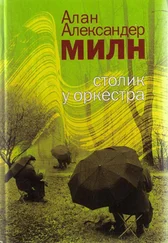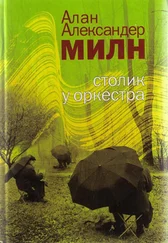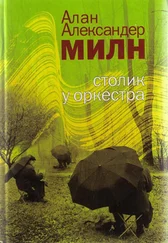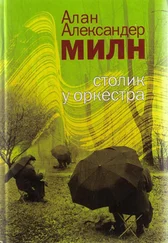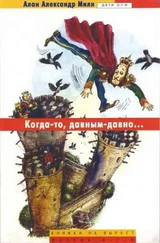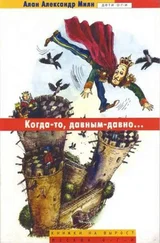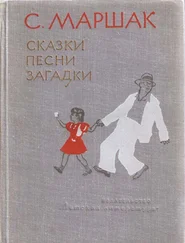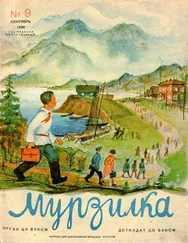Алан Милн - Happy Days
Здесь есть возможность читать онлайн «Алан Милн - Happy Days» весь текст электронной книги совершенно бесплатно (целиком полную версию без сокращений). В некоторых случаях можно слушать аудио, скачать через торрент в формате fb2 и присутствует краткое содержание. Год выпуска: 2014, Издательство: epubBooks Classics, Жанр: Юмористическая проза, на английском языке. Описание произведения, (предисловие) а так же отзывы посетителей доступны на портале библиотеки ЛибКат.
- Название:Happy Days
- Автор:
- Издательство:epubBooks Classics
- Жанр:
- Год:2014
- ISBN:нет данных
- Рейтинг книги:5 / 5. Голосов: 1
-
Избранное:Добавить в избранное
- Отзывы:
-
Ваша оценка:
- 100
- 1
- 2
- 3
- 4
- 5
Happy Days: краткое содержание, описание и аннотация
Предлагаем к чтению аннотацию, описание, краткое содержание или предисловие (зависит от того, что написал сам автор книги «Happy Days»). Если вы не нашли необходимую информацию о книге — напишите в комментариях, мы постараемся отыскать её.
Happy Days — читать онлайн бесплатно полную книгу (весь текст) целиком
Ниже представлен текст книги, разбитый по страницам. Система сохранения места последней прочитанной страницы, позволяет с удобством читать онлайн бесплатно книгу «Happy Days», без необходимости каждый раз заново искать на чём Вы остановились. Поставьте закладку, и сможете в любой момент перейти на страницу, на которой закончили чтение.
Интервал:
Закладка:
"My dear fellow!" he said. "And you haven't even packed! You'll be late. Here, get up, and I'll pack for you while you dress."
"Do," I said briefly.
"First of all, what clothes are you going to travel in?"
There was no help for it. I sat up in bed and directed operations.
"Right," said Herbert. "Now what about your return ticket? You mustn't forget that."
"You remind me of a little story," I said. "I'll tell it you while you pack—that will be nice for you. Once upon a time I lost my return ticket, and I had to pay two pounds for another. And a month afterwards I met a man—a man like you who knows all about tickets—and he said, 'You could have got the money back if you had applied at once.' So I said, 'Give me a cigarette now, and I'll transfer all my rights in the business to you.' And he gave me a cigarette; but unfortunately―"
"It was too late?"
"No. Unfortunately it wasn't. He got the two pounds. The most expensive cigarette I've ever smoked."
"Well, that just shows you," said Herbert. "Here's your ticket. Put it in your waistcoat pocket now."
"But I haven't got a waistcoat on, silly."
"Which one are you going to put on?"
"I don't know yet. This is a matter which requires thought. Give me time, give me air."
"Well, I shall put the ticket here on the dressing–table, and then you can't miss it." He looked at his watch. "And the trap starts in half an hour."
"Help!" I cried, and I leapt out of bed.
Half an hour later I was saying good–bye to Herbert.
"I've had an awfully jolly time," I said, "and I'll come again."
"You've got the ticket all right?"
"Rather!" and I drove away amidst cheers. Cheers of sorrow.
It was half–an–hour's drive to the station. For the first five minutes I thought how sickening it was to be leaving the country; then I had a slight shock; and for the next twenty–five minutes I tried to remember how much a third single to the nearest part of London cost. Because I had left my ticket on the dressing–table after all.
I gave my luggage to a porter and went off to the station–master.
"I wonder if you can help me," I said. "I've left my ticket on the dress― Well, we needn't worry about that, I've left it at home."
He didn't seem intensely excited.
"What did you think of doing?" he asked.
"I had rather hoped that you would do something."
"You can buy another ticket, and get the money back afterwards."
"Yes, yes; but can I? I've only got about one pound six."
"The fare to London is one pound five and tenpence ha'penny."
"Ah; well, that leaves a penny ha'penny to be divided between the porter this end, lunch, tea, the porter the other end, and the cab. I don't believe it's enough. Even if I gave it all to the porter here, think how reproachfully he would look at you ever afterwards. It would haunt you."
The station–master was evidently moved. He thought for a moment, and then asked if I knew anybody who would vouch for me. I mentioned Herbert confidently. He had never even heard of Herbert.
"I've got a tie–pin," I said (station–masters have a weakness for tie–pins), "and a watch and a cigarette case. I shall be happy to lend you any of those."
The idea didn't appeal to him.
"The best thing you can do," he said, "is to take a ticket to the next station and talk to them there. This is only a branch line, and I have no power to give you a pass."
So that was what I had to do. I began to see myself taking a ticket at every stop and appealing to the station–master at the next. Well, the money would last longer that way, but unless I could overcome quickly the distrust which I seemed to inspire in station–masters there would not be much left for lunch. I gave the porter all I could afford—a ha'penny, mentioned apologetically that I was coming back, and stepped into the train.
At the junction I jumped out quickly and dived into the sacred office.
"I've left my ticket on the dressing—that is to say, I forgot― Well, anyhow, I haven't got it," I began, and we plunged into explanations once more. This station–master was even more unemotional than the last. He asked me if I knew anybody who could vouch for me. I mentioned Herbert diffidently. He had never even heard of Herbert. I showed him my gold watch, my silver cigarette case, and my emerald and diamond tie–pin—that was the sort of man I was.
"The best thing you can do," he said, walking with me to the door, "is to take a ticket to Plymouth, and speak to the station–master there―"
"This is a most interesting game," I said bitterly. "What is 'home'? When you speak to the station–master at London, I suppose? I've a good mind to say 'snap'!"
Extremely annoyed I strode out, and bumped into—you'll never guess—Herbert!
"Ah, here you are," he panted; "I rode after you—the train was just going—jumped into it—been looking all over the station for you."
"It's awfully nice of you, Herbert. Didn't I say good–bye?"
"Your ticket." He produced it. "Left it on the dressing–table." He took a deep breath. "I told you you would."
"Bless you," I said, as I got happily into my train. "You've saved my life. I've had an awful time. I say, do you know, I've met two station–masters already this morning who've never even heard of you. You must enquire into it."
At that moment a porter came up.
"Did you give up your ticket, Sir?" he asked Herbert.
"I hadn't time to get one," said Herbert, quite at his ease. "I'll pay now," and he began to feel in his pockets…. The train moved out of the station.
A look of horror came over Herbert's face. I knew what it meant. He hadn't any money on him. "Hi!" he shouted to me, and then we swung round a bend out of sight….
Well, well, he'll have to get home somehow. His watch is only nickel and his cigarette case leather, but luckily that sort of thing doesn't weigh much with station–masters. What they want is a well–known name as a reference. Herbert is better off than I was: he can give them my name. It will be idle for them to pretend that they have never heard of me .
XV
A Breath of Life
This is the story of a comedy which nearly became a tragedy. In its way it is rather a pathetic story.
The comedy was called "The Wooing of Winifred." It was written by an author whose name I forget; produced by the well–known and (as his press agent has often told us) popular actor–manager, Mr. Levinski; and played by (among others) that very charming young man, Prosper Vane—known locally as Alfred Briggs until he took to the stage. Prosper played the young hero, Dick Seaton , who was actually wooing Winifred . Mr. Levinski himself took the part of a middle–aged man of the world with a slight embonpoint; down in the programme as Sir Geoffrey Throssell , but fortunately still Mr. Levinski. His opening words, as he came on, were, "Ah, Dick, I have a note for you somewhere," which gave the audience an interval in which to welcome him, while he felt in all his pockets for the letter. One can bow quite easily while feeling in one's pockets, and it is much more natural than stopping in the middle of an important speech in order to acknowledge any cheers. The realisation of this, by a dramatist, is what is called "stagecraft." In this case the audience could tell at once that the "technique" of the author (whose name unfortunately I forget) was going to be all right.
But perhaps I had better describe the whole play as shortly as possible. The theme—as one guessed from the title, even before the curtain rose—was the wooing of Winifred . In the First Act Dick proposed to Winifred and was refused by her, not from lack of love, but for fear lest she might spoil his career, he being one of those big–hearted men with a hip–pocket to whom the open spaces of the world call loudly. Whereupon Mr. Levinski took Winifred on one side and told the audience how, when he had been a young man, some good woman had refused him for a similar reason and had been miserable ever since. Accordingly in the Second Act Winifred withdrew her refusal and offered to marry Dick , who declined to take advantage of her offer for fear that she was willing to marry him from pity rather than from love; whereupon Mr. Levinski took Dick on one side and told the audience how, when he had been a young man, he had refused to marry some good woman (a different one) for a similar reason, and had been broken–hearted ever afterwards. In the Third Act it really seemed as though they were coming together at last; for at the beginning of it Mr. Levinski took them both aside and told the audience a parable about a butterfly and a snap–dragon, which was both pretty and helpful, and caused several middle–aged ladies in the first and second rows of the upper circle to say, "What a nice man Mr. Levinski must be at home, dear!"—the purport of the allegory being to show that both Dick and Winifred were being very silly, as indeed by this time everybody but the author was aware. Unfortunately at that moment a footman entered with a telegram for Miss Winifred , which announced that she had been left fifty thousand pounds by a dead uncle in Australia; and although Mr. Levinski seized this fresh opportunity to tell the audience how in similar circumstances Pride, to his lasting remorse, had kept him and some good woman (a third one) apart, nevertheless Dick held back once more, for fear lest he should be thought to be marrying her for her money. The curtain comes down as he says, "Good–bye…. Good–ber–eye." But there is a Fourth Act, and in the Fourth Act Mr. Levinski has a splendid time. He tells the audience two parables—one about a dahlia and a sheep, which I couldn't quite follow—and three reminiscences of life in India; he brings together finally and for ever these hesitating lovers; and, best of all, he has a magnificent love–scene of his own with a pretty widow, in which we see, for the first time in the play, how love should really be made—not boy–and–girl pretty–pretty love, but the deep emotion felt (and with occasional lapses of memory explained) by a middle–aged man with a slight embonpoint who has knocked about the world a bit and knows life. Mr. Levinski, I need hardly say, was at his best in this Act.
Читать дальшеИнтервал:
Закладка:
Похожие книги на «Happy Days»
Представляем Вашему вниманию похожие книги на «Happy Days» списком для выбора. Мы отобрали схожую по названию и смыслу литературу в надежде предоставить читателям больше вариантов отыскать новые, интересные, ещё непрочитанные произведения.
Обсуждение, отзывы о книге «Happy Days» и просто собственные мнения читателей. Оставьте ваши комментарии, напишите, что Вы думаете о произведении, его смысле или главных героях. Укажите что конкретно понравилось, а что нет, и почему Вы так считаете.
